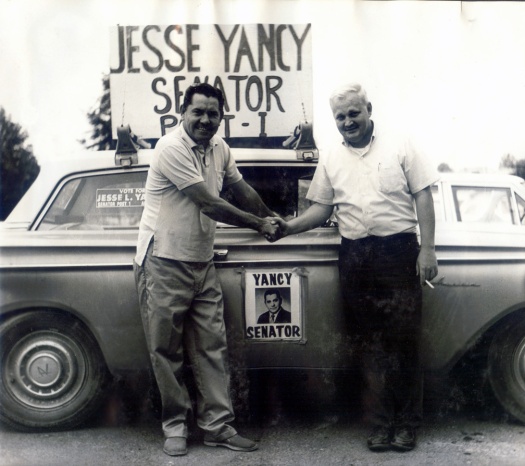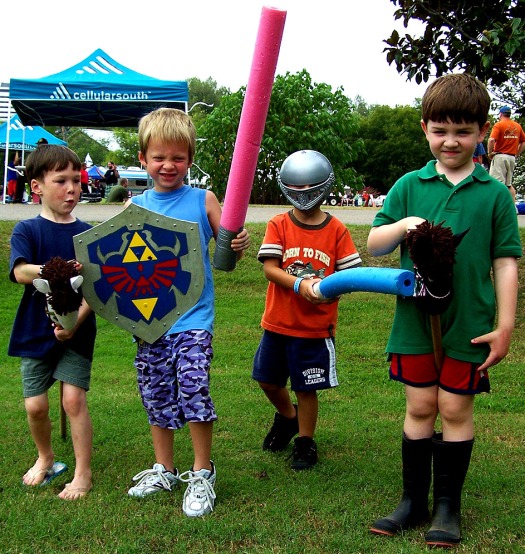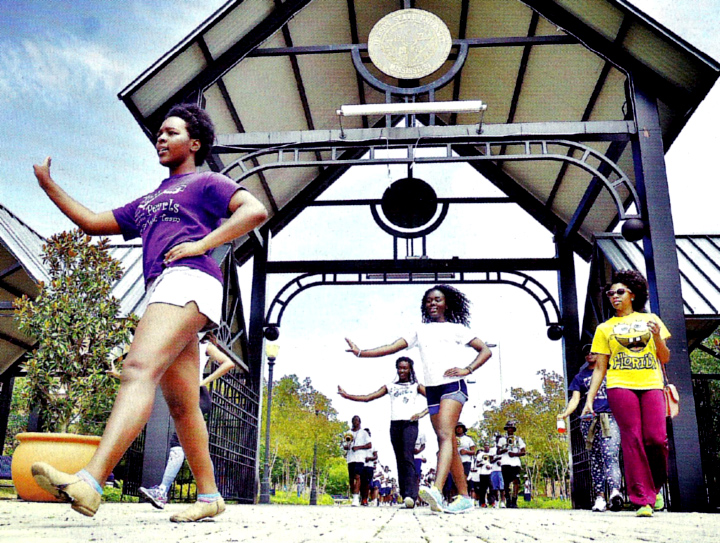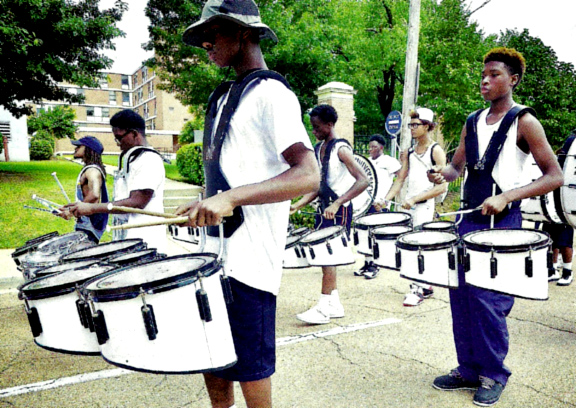Critters on Kenwood
Fred Smith at Choctaw Books
Rural Politicians
Portraits 2
Doughty Warriors
Jackson State University’s Baby Boom
Music lives in the heart of Jackson State University, and two of the most conspicuous components of that commitment to the expression, generation and perpetuation of music as essential elements of our culture are WJSU-FM, the city’s premiere source for living jazz, rhythm and blues and gospel, and the summa cum laude of bands, The Sonic Boom of the South.
The Jackson State University Marching Band was dubbed The Sonic Boom of the South by students in 1971. The band was initially formed of college enrollees and students from Lanier High School in the 1940s. Through the years it has become known for intricate precision marching and a jazz-infused, “big band” sound. The band has performed many halftime appearances for the Atlanta Falcons, Detroit Lions, New Orleans Saints and Cincinnati Bengals, and is a premiere attraction in halftime performances during football games and parades across Mississippi and in other states. This past June the Sonic Boom held their second band camp on the campus of Jackson State University in Jackson, attracting some 150 students. “The bulk of the students are from the South, from North Carolina, Georgia, Tennessee and Texas,” said Roderick Little Associate Director of Bands at JSU. “A lot of the camp this year is from Texas. There are several groups out of Dallas, Texas, and they brought maybe about 20 kids each. We also have students from Kansas City, Maryland, and most surprising a student from California.”
The camp is designed to provide extensive curriculum and teaching instruction of musical pedagogical approaches and marching fundamentals while providing a fun, strategic learning atmosphere for secondary school instrumentalists and band directors. Competencies will include leadership skills, social maturation, instrumental/musical growth, physical fitness and networking amongst students. Master classes were offered by the Sonic Boom band staff, including Leadership Skills, Classroom Management, Field Show Content, Arranging, Instrumental Pedagogy and more. Social events such as talent shows and dances were also held.
“We are continuing to reach out as music educators. I think that the college should be forerunners for secondary schools as it relates to teaching others how to be proficient,” Little said. “This camp is designed to continue to teach kids in music education at the secondary level. Because as I mentioned, I think that’s the job of collegiate programs: to help others. People should know about the continuing outreach of education from collegiate to the secondary sectors and the teaching of life skills.”
This past May, National Public Radio broadcast a feature story on the marching band at Edna Karr High School in New Orleans. The story focused on music education as not just another part of the school’s curriculum, but more as a lifeline for kids struggling against poverty, crime and urban decay, how marching bands keep kids off the street, give them a reason to come to school, and even get them into college.
“That story is very true to what we do here at Jackson State,” Little said. “As a matter of fact, the director, Christopher Herrero, is an alumnus of JSU. In particular, kids in those urban areas really take a liking to band, or really any sort of extracurricular activity for that matter because it helps keep them out of trouble. I think it told the story of really more than just one thing that a band can do. It’s more than teaching music. For a lot of students that come into collegiate bands, particularly from urban settings, the scholarships are very important because these are students whose parents would not be able to pay for school otherwise. So we do offer scholarships to students coming in, even though our scholarship budget isn’t as large as we could hope it would be. We do try to supplement the students who come here to Jackson State as much as we can. The recruiting is very competitive because every college wants the best students, the top students, so we go out and basically bid for students.”
One outstanding element of the band camp at JSU is the instruction of jazz to high school students. According to Little, this is an essential component of the experience Jackson State offers to the visiting students.
“Jazz lives here at Jackson State, and jazz is an art form that many people tend to run away from because it’s hard to understand because jazz is such an emotional kind of music; you have to be emotionally connected to it to actually play it,” Little said. “And I’ll be honest; it takes a special type of person to play music in general, but it takes a different type of person to play jazz because you have to connect to it. By implementing a jazz ensemble here at camp, we want to take those students who have that little something extra and teach them how to take it to the next level. All of these different ensembles together make up what we call a holistic band program. So the jazz ensemble plays a major role because it adds to that feeling of what we’re doing here. We have two great jazz ensemble directors, one of whom is on our band staff, and so what we wanted to do this year with camp is that we wanted to open it up, not just to subject the students to training in marching bands, but to teach them in ensemble work, and jazz is one of those ensembles.”
Henry Martinez is a trumpet player from Dallas. “I like the jazz band. We play our instruments in ensemble sessions, and then we go outside for the marching drill formations,” Henry said. It’s hard work, and they keep us on our toes, but I like the discipline, and I hope to bring that sense of discipline back to my school, how to be a leader and get everyone to work together instead of a lot of individuals just sticking up for themselves.”
“We’ve had a band at our school for a long time, but it’s like we change directors every year, so there’s not really a feeling of tradition like I’ve found here,” said Destiny Hopkins, a piccolo player and drum major from Atlanta. “I thought it was really going to be hard when I came here, but the staff really went out of their way to make us feel like we were part of something, part of a group. It’s like we’ve been doing this together forever. I’m looking forward to taking home of a piece of the musical tradition I’ve found here.”
Tarique McClendon from Atlanta, who plays baritone, said, “The pride that they instilled in us the very first day is so important, and that’s something I hope to bring home. The very first day, when we walked into orientation, Mr. Little got us all together and called us the ‘Baby Boom’. At that moment, and from then on, we were like family, we were all really close, it was like Destiny said, it was like we’d all been doing this together forever.”
In addition to the classes for students, the band camp at Jackson State also offers instruction for music educators who attend. “We have sessions with directors to help them with their preparations with their bands. Also, the thing which I consider most important, is that they come together from different parts of the United States and discuss problems that they might be having, holding round table discussions on how to fix those problems. I think that’s the most important thing. But coupled with that, we as advanced teachers at Jackson State sit them down and talk to them about things that can improve their programs, and that’s the gist of those classes.”
Carleton Cooper, of Wilmer Hutchins High School in Dallas, Texas, said, “I’ve been directing for about fifteen years. The camp is exciting. I’m getting a lot of technique from band legends. Growing up as a kid, I watched Dr. Taylor (Dowell Taylor, Assistant Professor of Music, Director of Music Technology and Director of Bands), and his band on BET as a kid, as well as Dr. Sanford (O’ Neill Sanford, Visiting Professor of Music and Assistant Band Director, is the President of the HBCU National Band Directors’ Consortium, founder of the HBCU “Battle Fest” Battle of the Bands), and there just aren’t that many legends that you can have hands-on conversations with, especially in Texas, in Dallas. Just being to have access to the wealth of knowledge that those gentlemen have is inspiring. For me as a director going into my fifteenth year, they’ve inspired me to keep pushing, because if they can do it for so long, that gives me a sense of following in their footsteps, and it renews my spirit. Our band program includes about 70 students,” Cooper said. “The experience that we’ve gained from coming to the camp has really helped the students with their music. We had the opportunity to attend the camp last year, and the students brought back some phenomenal skills, great leadership skills and musical skills. We also had a chance to see our kids blossom and mature just from the college experience and being away from home. This year, we hope to capitalize on that by taking the same thing back, but expanding on it.”
“We are helping mold children to be better,” Little said. “Band teaches more than just music. It teaches so many other things a child is going to need; it teaches life.”
Photographs courtesy of Charles Brice- Brice Media LLC
Sunday Morning in Smith Park
Father and Son 2
Lighting up the Neighborhood: Bright Lights, Belhaven Nights; the Beginning
Tomorrow Belhaven will illuminate the city with the 14th “Bright Lights, Belhaven Nights”. In this interview from 2014, Councilwoman Virgi Lindsay, former executive director of the Greater Belhaven Neighborhood Foundation (GBNH), looked back on a decade of commitment and celebration.
“Camp Best, who was director of the Fondren Renaissance Foundation at the time, suggested that the GBNH should have a neighborhood festival in Belhaven. We’d been working hard on Fortification Street, and we wanted to do something fun and visible to bring people to the area. Camp and I were having coffee at Cups, and he said that we needed to do a street festival. I agreed; we already had the Belhaven Market going on, which was a Saturday event, but it was clear that we needed to take the next step.”
“There were several occasions that Virgi and I met for coffee at Cups in the early days of Fondren Renaissance Foundation and the Greater Belhaven Foundation,” Camp said. “We were fellow urban warriors in the trenches together back then, supporting each other in whatever way we could. The Fondren Renaissance Foundation had experienced some early successes with our Arts, Eats and Beats, Fondren Unwrapped, Symphony at Sunset and ARTMix (the early precursor to Fondren After Five). All of these events had one purposeful thing in common: get people outdoors in your neighborhood to show the world that it is safe to have fun there. Make it free, so everybody can come, and, use local music and art as the draw.”
Camp said that when he suggested to Virgi that she consider doing the same thing in Belhaven, she worried that they didn’t really have any restaurants or galleries for people to come to back then. “I said it didn’t matter. Make it up; make it look like you do, put the music and artists in the street and people will come. And they did.”
“So in a couple of weeks, I really began thinking about where it could be and when,” Virgi said, “And I began research on a good time to have a festival in Jackson when we wouldn’t have a lot of competition. I quickly found out that every month when the weather could be expected to be great was just full of events. But about that time, Chuck and I went to New Orleans in August, and just happened upon White Linen Night, one of the first ones they held. At that point, it was still a very quiet little event run by the residents on Julia Street. I looked around at this lovely, wonderful neighborhood event, and I thought that if New Orleans can have an outdoors event in August, Jackson, Mississippi can, too.”
Virgi said another reason the Belhaven foundation chose August was because they knew that if they were doing an event in April or October that the competition for sponsorships would be very tough, so scheduling an event in August helped guarantee that the sponsors would be more generous. “And yes, everyone thought we were nuts, but we decided to give it a go. We worked with the theory that it would be the last party of the summer, so we’ve always held Bright Lights, Belhaven Nights the weekend before school starts, the weekend before football season starts.”
Councilwoman Margaret Barrett-Simon said, “It’s exciting that this is the tenth anniversary of Bright Lights, which is an amazing gift that Belhaven gives not only to our neighborhood, but the city itself. We all look forward to it. When we first started on this project, we thought, ‘Who on earth is going to come to an event in the middle of August?’ Well, they all came, they continue to come, and when you look at the diversity of the crowd at Bright Lights, you’ll find that it’s representative of Jackson. I’m so proud of Virgi and her group; they’ve done an incredible job putting this on year after year, and it has become one of the truly outstanding events in our city.”
“The very first year, 2005, Katie Hester and Cheryl Grubbs were the first co-chairmen of the event,” Virgie said. “We were going to open the gates at 5:30, still figuring things out, not sure at all how it would go. We looked up at 5:15, and there a good 500-600 people walking down to Carlisle Street. We had over 1500 people to come that first year. The Belhaven Improvement Association (BIA) volunteered to cook hot dogs and hamburgers in McDade’s parking lot. It was probably the hottest year we’ve ever had, with temperatures hovering around 100 at five in the afternoon. We had some food vendors, and BIA bought every hot dog in McDade’s, but we still ran out of food, we ran out of drinks, we ran out of everything, but as far as we were concerned, that was the most wonderful problem to have.”
Virgi remembers many near misses. “That July, Winn-Dixie had pulled out of the old Jitney 14 space, which was the second time in a short period that the neighborhood almost lost its grocery store. But just four days before the first Bright Lights, Belhaven Nights, GBNH could finally announce that McDade’s was going into the space. “There was a time when we thought that we were having our first festival and our one big anchor in the neighborhood would be lost. It was touch and go, but a week before Bright Lights, Greg McDade moved in. So instead of there being a big, dark, padlocked building at the festival site, we had a vibrant neighborhood grocery with all the energy associated with it.”
“Nobody knew what to expect,” Virgi remembers. “McDade’s ran out of change, everybody ran out of water. Then nine days later came Katrina, and retrospect it’s very emotional when you think about what a wonderful time we all had together that Saturday night, when we came together as a community without any realization that within a very short time we would pull together again in a totally different way. We had a wonderful grounding in the first event; and we came to know that we’re here, we’re together, and looking back it’s a powerful memory.”
“Belhaven has a lot of assets when it comes to putting on a festival of this type,” Virgi said. “For starters, we have a beautiful park we redid and renovated that’s like our ‘town center’. For another thing, we have very willing and cooperative neighbors. Every time a house on Carlisle or Kenwood (the streets where the festival takes place) goes on the market, we get a little worried because we know that the footprint of this festival greatly depends on the participation of the neighbors. And that’s what we’ve got to have, that’s what anyone’s got to have when they’re putting on an event like this, you must have great partners.”
Virgi says that the Foundation stays very true to their original intent, which is promoting all things relating to Greater Belhaven. “I think sometimes festivals get bigger and get growing and losing their originality: they bring in big groups, big bands, national entertainers, import big sponsorships for support. We have really steered clear of that. We could have done it, and a lot of people have told us we should do it, but we have stayed true to our intent of being indigenous. Starting in January, we get almost a million calls from people who are selling or reselling items, but you have to be connected to Belhaven in some way, and we only allow producers, meaning you can’t be a resale vendor. For instance, if you are reselling jewelry that you didn’t make, we will not let you come.”
“Another thing we’re very committed to is keeping the costs low,” Virgi said. “We want this to be a wonderful event for everyone. We have fabulous sponsorships; businesses really reach out and support us, so we can keep the costs low for families. It’s not designed to be a huge fund-raiser for the Greater Belhaven Neighborhood Foundation, but rather an event to promote Greater Belhaven and the City of Jackson.”
Virgi said that her best advice for someone starting a neighborhood festival would be to build a good team. “You can’t do it without a strong team. We’re very fortunate to have Betty Smithson, our programs director, who has been here for six years, and we have Carter Hood, our events coordinator, for the festival this year. We also rely heavily on our volunteers; we have about 100 every year.”
“Oh, and this is another piece of advice: When you name a festival, be sure you know what you’re doing,” Virgi said. “Because when you call something ‘Bright Lights, Belhaven Nights’, you have to have electricity; it was a total shock to us the first year when we realized, ‘Oh, we’ve got to have power!’ The first year, we spent the night before pushing extension cords through mail slots. For three years, we ran it on power from everybody’s house. We now have three temporary power poles, but we still run the event off power cords, and we have literally miles of them.”
“The word is out that Bright Lights, Belhaven Nights is a great festival. Every year, when we think that it can’t get any better, it does.”















